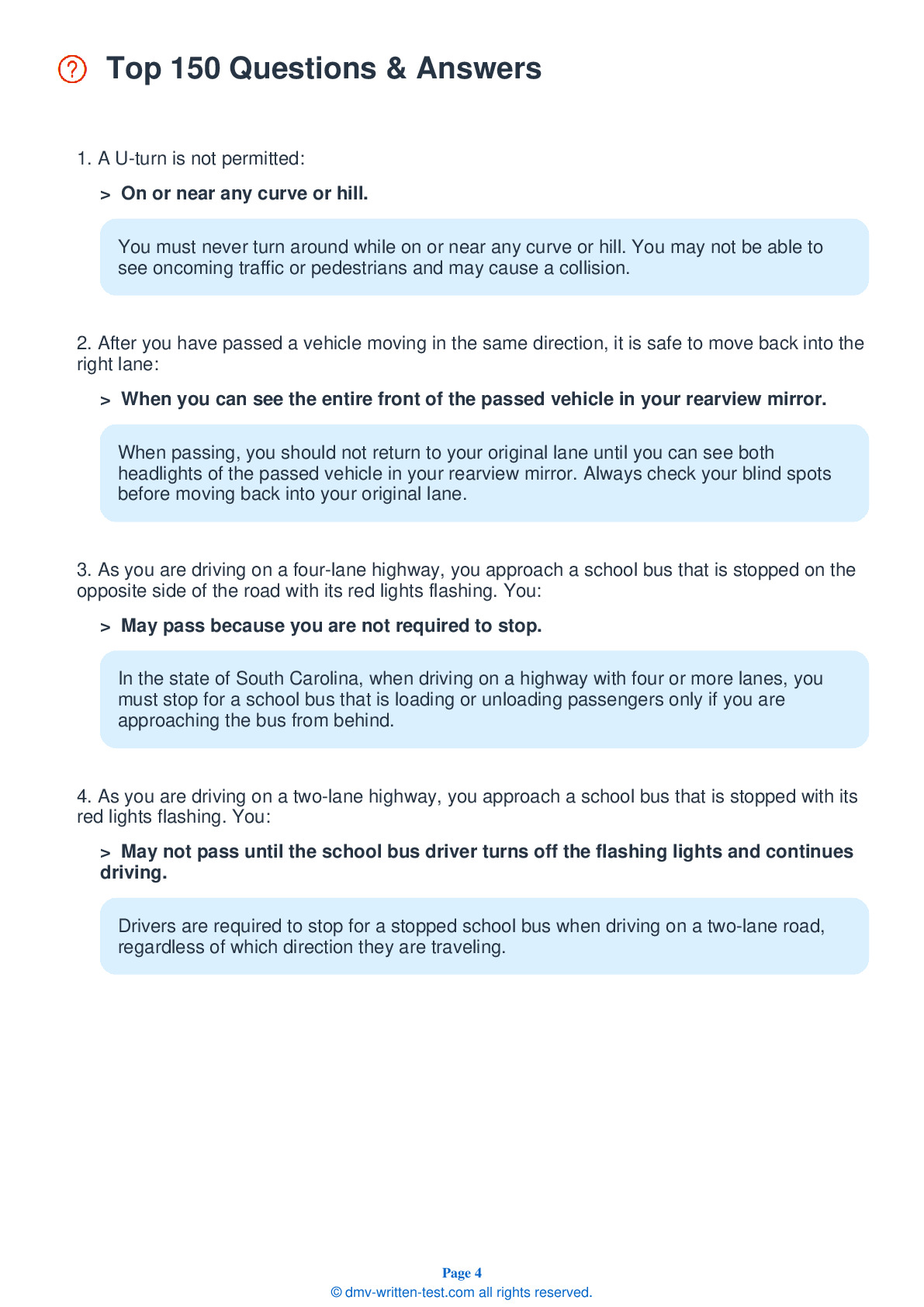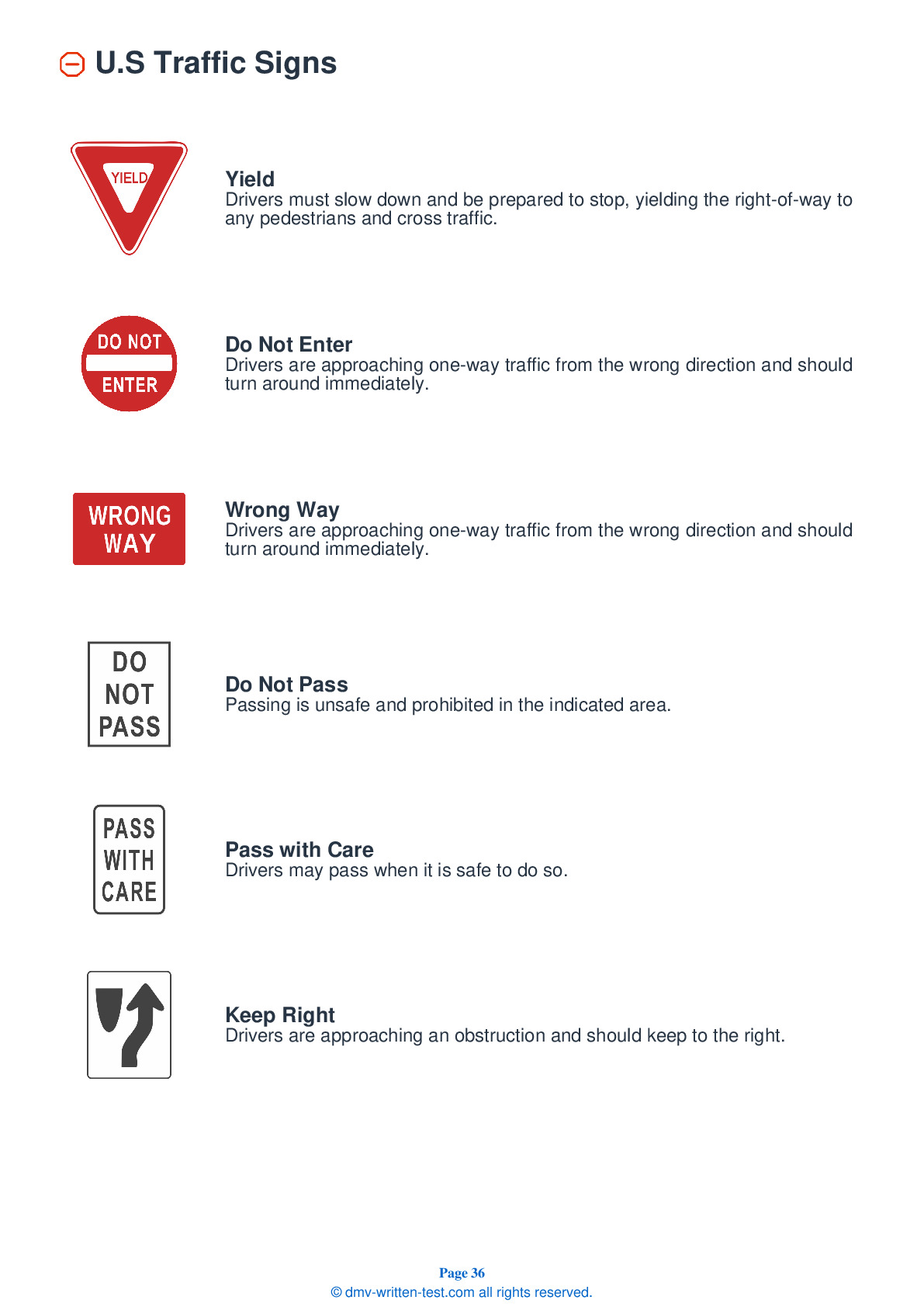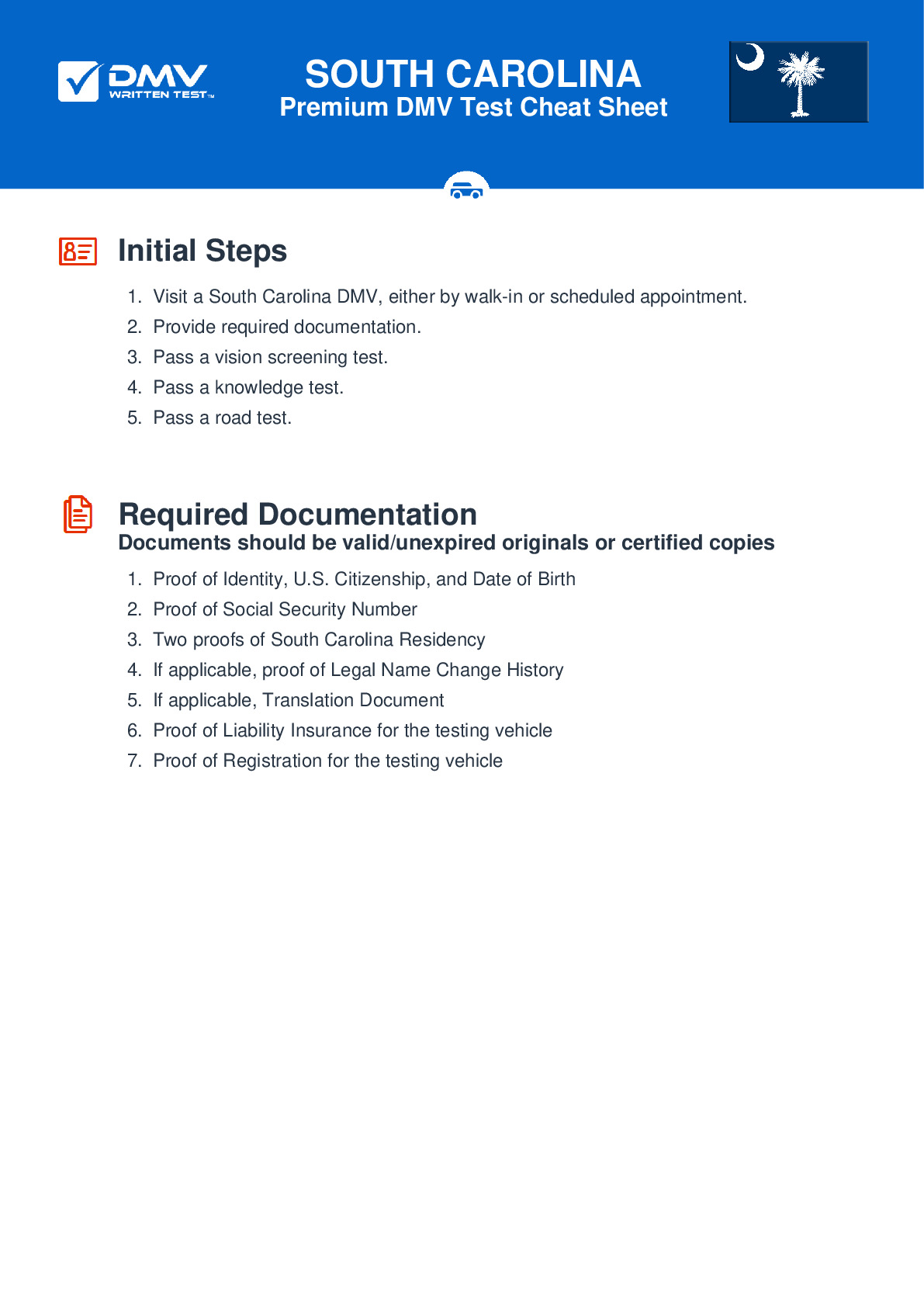2025 South Carolina Permit Test 10
The following questions are from real DMV written tests. These are some of the actual permit questions you will face in South Carolina. Each permit practice test question has three answer choices. Select one answer for each question and select "grade this section." You can find this button at the bottom of the drivers license quiz. For a complete list of questions and answers for South Carolina please visit https://cheat-sheets.dmv-written-test.com/en/south-carolina/car.
Number of Tests
Number of Question
Passing Score
1. Tailgating other drivers (driving too closely to their rear bumper):
Explanation
Tailgating is a common behavior that can lead to aggressive driving, and so it should be avoided. Drivers may face legal consequences for driving unsafely.
2. A broken yellow line down the center of a road indicates that:
Explanation
When broken yellow lines separate the lanes of traffic on a two-lane roadway, any driver may pass when there is no oncoming traffic.
3. If oncoming headlights are blinding you while you are driving at night, you should:
Explanation
If the headlights of an oncoming vehicle are blinding, glance toward the right edge of the road instead of looking directly ahead. This should keep your vehicle safely on the road until you pass the oncoming vehicle.
4. You may drive around the gates at a railroad crossing:
Explanation
You are required to stop at all railroad crossings when signals warn of an approaching train. These signals may include flashing red lights, a lowered crossing gate, a flagger signaling, or a train’s audible signal of warning. Do not attempt to go around a lowered gate.
5. You must yield for emergency vehicles:
Explanation
You must yield the right-of-way to any emergency vehicle that is using its siren or flashing lights.
6. You are driving when it starts to sleet or snow. You should:
Explanation
In snowy weather, keep your windshield and mirrors clear. Increase your following distance when driving in wet and cold weather because a slippery road surface will increase the distance needed for your vehicle to stop.
7. An inattentive driver is a driver who:
Explanation
Do not become distracted by looking at passengers, attempting to find something in your vehicle, looking at reading material, sightseeing, or daydreaming while driving. Continue scanning the road, checking your mirrors, and looking at the instrument panel at regular intervals. Developing these safe habits will keep you attentive as a driver.
8. You must not drive your vehicle at a speed greater than:
Explanation




